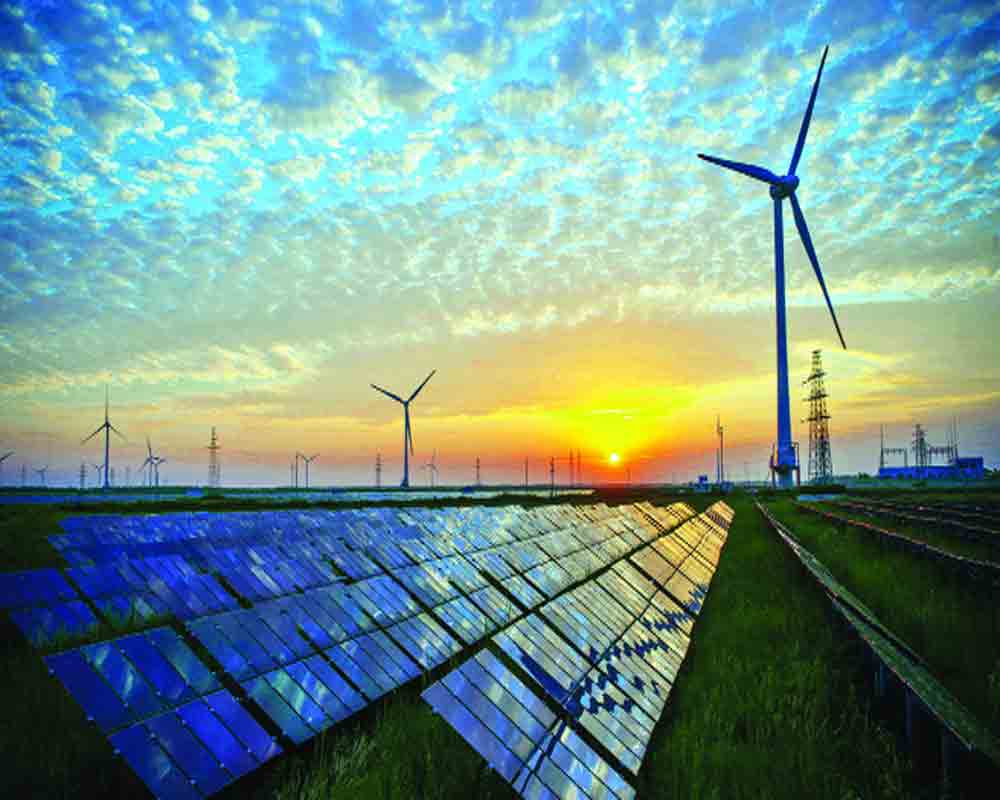The transition of energy is happening at a rapid pace which will cause a paradigm shift in geopolitical power structure
The order of power in the world has been driven by the shifts in the Energy equations, history has shown. The Steam Engine Industrialisation enabled Britain to emerge as a global superpower drawing upon its readily available supply of coal. Subsequently, Fordism peaked in World War II and brought the US to the centre of global power, shifting the focus on Oil as the energy of the future of Carbon Capitalism for decades to come. Thereon the unequal distribution of fossil fuels has been central to geopolitical power equations.
The sudden, escalating and preposterous scale of Climate Change induced disruptions, have posed existential threats to global power equations including (1) capital losses from fossil fuel reserves being stranded, (2) losses to treasury reaped from the fossil fuel rents and most importantly (3) loss of the geopolitical power advantages due to the shift to more diffused zero-carbon energy sources such as the solar, wind and hydropower.
Also, an aspect that can’t be ignored is that an energy transition entails a technology transition. The eternal zeal towards maximising power from fossil-fueled internal combustion-based systems would shift to electrification in novel ways. Take the case of the global automotive industry which has an almost 3.5% share of global GDP; its technological shift towards EVs is bound to have a deep impact across its value chain. Also, as the R&D in the conventional energy systems slows down, the locked-in investments would starve for upgrades, particularly in countries having a dependency on technology transfer. These large-scale industry-wide shifts would put pressure on the geopolitical equilibrium. Also, emissions-linked tariffs in global trade regimes, like the one proposed by the EU are already concerning its trade partners.
The theatre of energy-critical materials like lithium, nickel, cobalt, copper and rare earth elements is already abuzz with action as nations scramble to secure the reserves worldwide. Since the essential resources for energy transition are not necessarily a consequence of inherited natural advantage, new fault lines are emerging, pushing the global giants to reposition their competitive advantages and undermine the geo-political strengths of others to maintain their position of power in the era of Green Industrialisation. The war in Ukraine, resulting in uncertainty in gas supplies has served as a wakeup call for Europe to hasten its renewable energy transition. Japan, another developed and technologically advanced nation, has announced its intention to be a part of the power play by announcing its Hydrogen strategy that targets an annual supply of 12 million tonnes by 2040. India too, is leading the global solar
effort by playing a leadership role in the International Solar Alliance and through its recently unveiled Hydrogen strategy, it aspires to become a global electrolyser production hub.
The issues of energy security, energy poverty and climate change are central to the concept of energy transition and provide an opportunity towards the creation of a more equitable and sustainable world. For a smooth transition to a new geo-political world order the following may be the critical elements:
Equitable & Fair Transition – Mitigation of socio-economic dislocation through compensation for stranded carbon assets and creating opportunities for job mobility
Revival of Multilateralism – Global institutions need to collaborate more than ever to break the vested interest nexus and create incentives for rapid action
Technological Leapfrogging – Open-source technological breakthroughs can prevent the creation of newer pockets of power based on energy capabilities and create a new world order
Diffusion of power to emerging nations – Considering the future centres of global economic growth and therefore consumption of energy to be anchored in the emerging nations, their voice needs to find a central space in global power equations.
(Sairam is an international development advisor and a Chevening scholar, & Srivastav is an Indian Railway Service Officer and a Commonwealth scholar; views are personal)

























